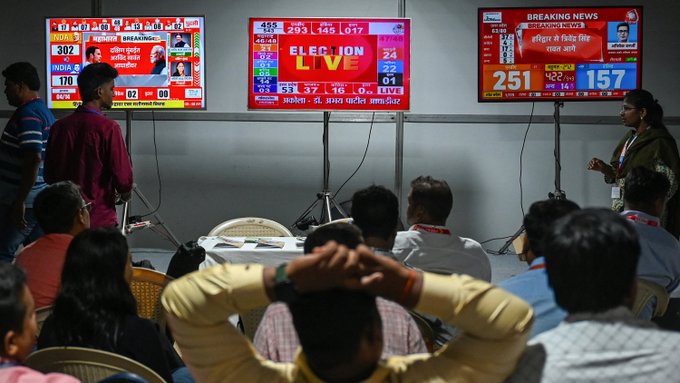
Alcoholism has become a pervasive and deeply concerning issue among young adults in Kenya, casting a dark shadow over the lives of individuals, families, and communities. Through the powerful personal narratives of those affected, we gain a profound understanding of the insidious nature of this public health challenge and its far-reaching consequences.
Mwendwa’s Story: Escaping the Cycle of Trauma and Addiction

Mwendwa’s childhood was marred by the corrosive effects of her father’s alcoholism. She vividly recalls the turmoil that engulfed her family, as her father’s excessive drinking led to emotional and financial instability, and even episodes of domestic violence. The trauma of this experience left an indelible mark on Mwendwa, leading her down a path of depression and, ultimately, her own struggles with alcohol abuse as a coping mechanism.
“I remember the fear and anxiety I felt every time my father came home drunk,” Mwendwa recounts, her voice tinged with a deep sadness. “The yelling, the broken promises, the way it tore our family apart – it was a living nightmare that I couldn’t escape.” As Mwendwa grew older, she found herself drawn to alcohol, seeking solace in the temporary numbness it provided. “It was my way of drowning out the pain and the memories, of trying to find some semblance of peace. But of course, it only made things worse in the long run.”
Mwendwa’s story is not an isolated one, but rather a poignant reflection of the complex web of trauma, depression, and addiction that plagues many young Kenyans from households affected by alcoholism. The corrosive effects on mental health, academic performance, and social relationships are all too common, as individuals like Mwendwa turn to substance abuse as a desperate attempt to cope with the challenges they face.

Wambugu’s Descent into Addiction: From Experimentation to Decades-Long Battle
Wambugu’s journey with alcoholism began innocuously, with his first taste of traditional brews as a curious child. What started as occasional experimentation soon spiraled into a decades-long battle that would ultimately cost him his career, his family, and his sense of self-worth.
“I remember the first time I tried the local brew, it was at a village gathering,” Wambugu recalls, his voice tinged with regret. “The taste was strange, but the sense of euphoria it provided was alluring. I had no idea how quickly it would consume my life.”
As Wambugu grew older, his alcohol consumption escalated, infiltrating every aspect of his life. He found himself neglecting his responsibilities at work, his relationships with loved ones, and his own well-being. “It was as if alcohol had become my closest companion, a crutch I relied on to numb the pain of my failures and insecurities.”
Wambugu’s descent into the depths of addiction was a gradual but relentless process, one that robbed him of his potential and left him feeling trapped in a cycle of despair. “I tried to quit so many times, but the grip of alcoholism was too strong. I lost everything – my job, my family, my sense of purpose. It was as if I had become a stranger, even to myself.”
Wambugu’s story poignantly illustrates the insidious nature of alcoholism, and the devastating impact it can have on individuals and their loved ones. His journey is a stark reminder of the crucial need to address the underlying factors that drive young Kenyans towards substance abuse, and to provide the necessary support and resources to help them break free from the clutches of addiction.
Unraveling the Complexities: The Multifaceted Drivers of Alcoholism Among Kenyan Youth
The scourge of alcoholism among Kenya’s youth is not simply a matter of individual choice or moral failing, but rather a complex interplay of social, economic, and cultural factors that create an environment conducive to substance abuse.
One of the primary drivers of this issue is the normalization and widespread acceptance of alcohol consumption within certain communities. Peer pressure, social learning from parents, and the cultural significance of traditional brews all contribute to the perception that alcohol use is a natural and acceptable part of life. This normalization can make it exceedingly difficult for young people to resist the temptation to experiment and, ultimately, develop unhealthy patterns of consumption.
Compounding this challenge is the harsh reality of poverty and lack of economic opportunity faced by many Kenyan youth. With limited access to quality education, meaningful employment, and positive outlets for personal growth, some young people turn to alcohol and drugs as a means of escapism, seeking solace in the temporary numbness they provide.
The impact of mental health challenges, such as depression and anxiety, cannot be overstated. Many young Kenyans struggling with unresolved trauma, family dysfunction, or a profound sense of hopelessness find themselves turning to alcohol and other substances as a form of self-medication, further exacerbating the cycle of addiction and deteriorating well-being.
“It’s not just about the alcohol itself,” explains Dr. Fatma Swaleh, a clinical psychologist based in Nairobi. “The underlying factors – the poverty, the lack of support systems, the unaddressed mental health issues – these are the real drivers of this crisis. Without addressing these root causes, we’ll continue to see young people trapped in a downward spiral of substance abuse.”
Woven through these complex societal challenges are the personal stories of individuals like Mwendwa and Wambugu, whose lives have been irrevocably shaped by the scourge of alcoholism. Their narratives serve as a poignant reminder of the urgent need to rethink our approach to this issue, shifting the focus from mere abstinence and punishment to a more holistic, compassionate, and evidence-based model of prevention and treatment.

A Holistic Approach to Tackling Alcoholism Among Kenyan Youth
Confronting the scourge of alcoholism among Kenya’s youth demands a multifaceted, evidence-based approach that addresses the problem at the individual, community, and policy levels. By drawing on the insights and experiences of those who have faced and overcome addiction, as well as the expertise of healthcare professionals and policymakers, we can chart a path towards a brighter future for Kenyan youth.
Empowering Individuals: Strengthening Mental Health and Addiction Support Services
At the individual level, the key to tackling alcoholism lies in providing comprehensive, accessible, and culturally sensitive mental health and addiction support services. This includes expanding the availability of evidence-based addiction treatment programs, as well as integrating mental healthcare into primary care settings to address the underlying issues that often drive substance abuse.
“Too often, we see young people struggling with alcoholism or other addictions, but the real root of the problem lies in unresolved trauma, depression, or anxiety,” explains Dr. Swaleh. “By strengthening our capacity to identify and address these underlying mental health challenges, we can empower individuals to confront their addictions and develop healthy coping mechanisms.”
This holistic approach to individual support must also include aftercare and rehabilitation services, ensuring that those who have successfully completed addiction treatment programs have the resources and community-based support they need to maintain their recovery and reintegrate into society.

Empowering Communities: Leveraging Local Knowledge and Expertise
Alongside the strengthening of individual-level interventions, a crucial component of the solution lies in empowering communities to take an active role in addressing the scourge of alcoholism. By drawing on local knowledge, expertise, and cultural nuances, community-based initiatives can be tailored to the unique needs and challenges faced by different regions and demographics within Kenya.
Rapid assessments to identify gaps and priority areas for intervention, the facilitation of increased recognition of alcohol-related harm at the local level, and the mobilization of community resources and networks can all contribute to the development of effective, contextually-relevant solutions. This might include the creation of alcohol-free environments, particularly for youth and other at-risk groups, as well as the provision of community-based care and support services for affected individuals and their families.
“The impact of harmful alcohol use is felt most acutely at the community level,” says Jane Wambui, a community organizer in Nairobi’s Kibera slum. “By empowering local leaders, strengthening partnerships, and tapping into the wisdom and resilience of our own people, we can develop grassroots initiatives that truly address the unique challenges we face.”
Strengthening Policy and Regulatory Frameworks
Underpinning the individual- and community-level interventions must be robust policy frameworks and strong leadership at the national level. Comprehensive national strategies, tailored to local contexts, that address the availability of alcohol, regulate marketing and advertising, and enforce stringent drink-driving laws can have a profound impact on curbing the scourge of alcoholism.
“Sustainable action requires political will, adequate funding, and a clear vision for how we can tackle this issue head-on,” emphasizes Dr. Swaleh. “By establishing comprehensive national policies, backed by effective monitoring and surveillance systems, we can create a regulatory environment that supports the implementation of evidence-based interventions and empowers communities to take ownership of the solution.”
This policy-level approach must also consider the complex dynamics of the informal alcohol market, which remains a significant challenge in many parts of Kenya. Measures to regulate the production and sale of illicit or informally produced alcoholic beverages, coupled with efforts to bring these markets into the formal taxation system, can help mitigate the additional public health risks associated with uncontrolled alcohol consumption.
Effective Policy Frameworks to Regulate Illicit and Informal Alcohol Production and Sale in Kenya
Strengthening Regulatory and Enforcement Systems
The Kenyan government has established a comprehensive legal framework, the Alcoholic Drinks Control Act of 2010, to regulate the manufacture, sale, consumption, distribution, and promotion of alcoholic beverages. This act includes procedures for licensing and registering producers and distributors of alcoholic products. To effectively tackle the challenge of illicit and informal alcohol, the Kenyan authorities can further strengthen these regulatory and enforcement systems.
Improving Quality Control and Taxation of Informal Alcohol
One key strategy is to improve quality control measures for both formal and informal production and distribution of alcoholic drinks. This can involve integrating the informal alcohol market into the formal taxation system, regulating the sales of informally produced alcohol, and implementing an efficient control and enforcement mechanism, such as the use of tax stamps. These measures can help ensure the safety and quality of alcoholic products while also generating revenue for the government.

Enhancing Collaboration and Information Sharing
Effective cooperation and information sharing among national and international authorities is crucial for combating the illicit alcohol trade. This can include developing or strengthening tracking and tracing systems for illicit alcohol, as well as ensuring necessary collaboration and exchange of relevant information between various government agencies. Such coordinated efforts can disrupt the supply chain and distribution networks of illicit alcoholic beverages.
Raising Public Awareness and Issuing Warnings
Alongside regulatory and enforcement measures, the Kenyan government can focus on raising public awareness about the health risks associated with informal or illicit alcohol. Issuing relevant public warnings about contaminants and other threats can help discourage the consumption of these potentially dangerous products.
Addressing Underlying Drivers of Informal Alcohol Production
It is important to recognize that the production and sale of informal alcohol is often deeply ingrained in local cultures and economies. Efforts to regulate this market should be combined with strategies to address the underlying drivers, such as providing alternative sources of income and livelihood opportunities. This holistic approach can help tackle the root causes of informal alcohol production and distribution.
By employing a comprehensive, multifaceted approach that strengthens regulatory and enforcement systems, improves quality control and taxation of informal alcohol, enhances collaboration and information sharing, raises public awareness, and addresses underlying socioeconomic factors, the Kenyan government can more effectively curb the production and sale of illicit and informally produced alcoholic beverages. This, in turn, can help mitigate the significant public health and social consequences associated with the harmful use of these products.








